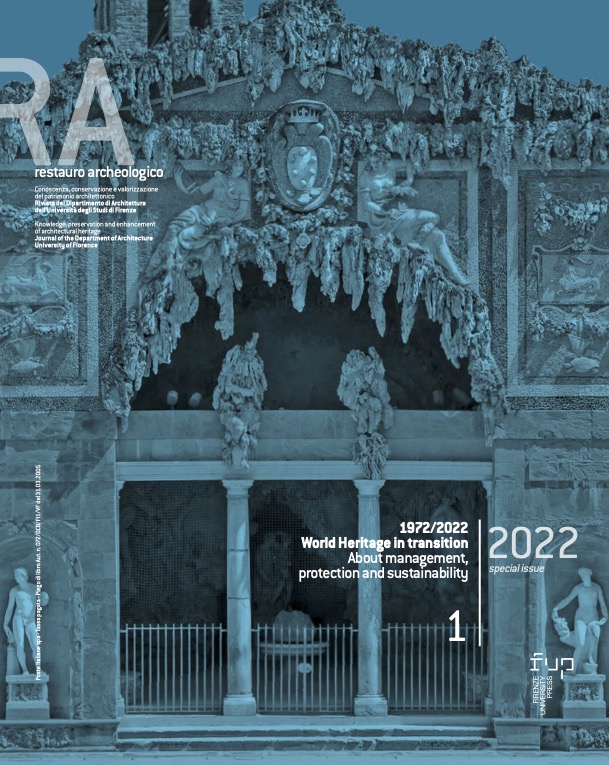Published 2023-02-03
Keywords
- Mausoleum of Oljeitu,
- Soltaniyeh,
- Iran,
- Sanpaolesi,
- Restoration
- Dome ...More
How to Cite
Abstract
At the time of the signing of the Convention for the Protection of the World Cultural and Natural Heritage the Oljeitu Mausoleum at Soltaniyeh in Iran was already the subject of an international programme of restoration and conservation, in the spirit of collaboration that was to be sanctioned by the same convention. The designer and person in charge of these works was Piero Sanpaolesi. He was already a consultant for the United Nations Organisation and in those same years he directed the Institute of Restoration of Monuments at the Faculty of Architecture in Florence and headed the institution of the same name that he founded at the University of Tehran. The mausoleum commissioned in the early 14th century by Oljeitu, the eighth ruler of the Ilkhān dynasty, in Soltani- yeh, is covered by a dome, made of masonry with a double calotte, which bears similarities to Brunelleschi's dome in Santa Maria del Fiore, and is the third largest in the world. In July 2005 in Durban, the Mausoleum of Oljeitu in Soltaniyeh was inscribed on the UNESCO World Heritage List. Fifty years after the first restoration work, it is possible to take stock of the effects that the activities carried out, in the spirit of the Heritage Convention, have had on this particular UNESCO site.


